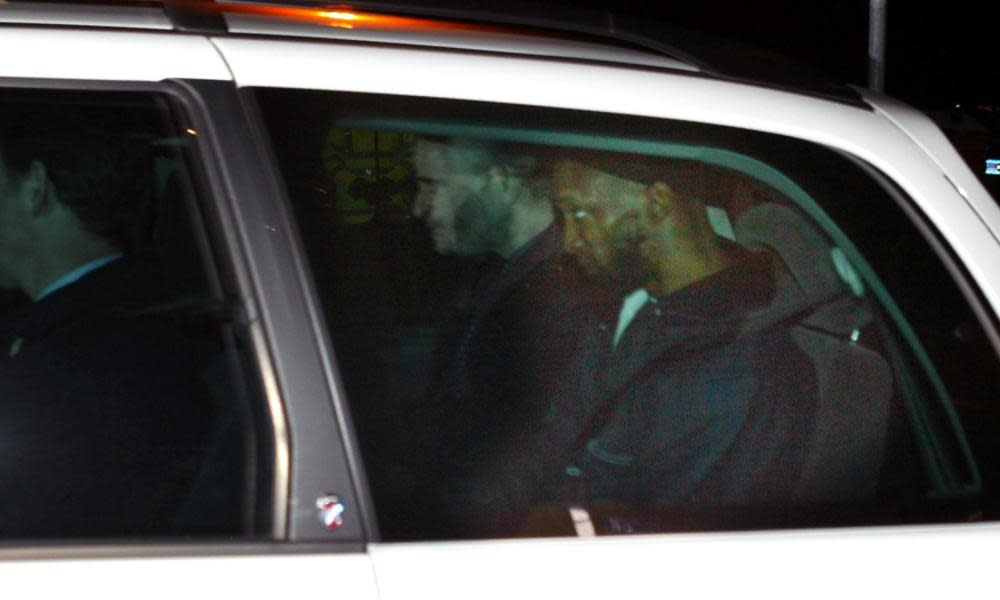Why it was right to release Jamal al-Harith in 2004 | David Blunkett

A great deal has been said and written over the last 24 hours regarding the return to Britain of Jamal al-Harith from Guantánamo Bay in March 2004. So-called Islamic State has claimed he was responsible, on its behalf, for a suicide attack near the Iraqi city of Mosul. Since his release occurred while I was home secretary, I think it is important to set out the work we did to keep the public as safe as possible. Some of the reporting has been grossly inaccurate, and in some cases deeply offensive. It is certainly a novel experience for me to be accused of being “soft on terrorism”.
While I never “campaigned” for the return of Harith – who was born Ronald Fiddler – from Guantánamo Bay, I was of the opinion that the situation of British citizens held without trial there was not only unsustainable, it was legally and morally indefensible. I feel the same way now, for reasons I will come to.
While Harith was still under US jurisdiction, we sought from the Bush administration any evidence they may have obtained when picking up this individual from Kandahar – evidence of wrongdoing that would be sufficiently robust to stand up in court in any trial in the United Kingdom. No such evidence was provided.
When the released detainees returned to this country, questions were quite legitimately raised over whether the communities to which they were returning would be safe, given their presence.
On taking advice from the security and policing services, I gave a broad reassurance that those communities would not be at risk. This wasn’t simply to alleviate fears at a time of understandable tension, but because – contrary to speculation – those returning from Guantánamo Bay were subject to surveillance and monitoring by the security services.
I would not have made any statement of reassurance had that monitoring not been in place. Even the most malevolent critic would have to admit that to have failed to have done so would have caused considerable and unwarranted disquiet. And, thankfully, it remains the case that those communities who received this limited reassurance were not in fact subject to attack by those who returned from Guantánamo. To suggest that this is not the case is the worst kind of irresponsible reporting.
I am not aware how long this observation continued after I left the Home Office at the end of 2004. It is clear, though, that in 2010, under the coalition, when compensation was actually awarded to returnees, these individuals must have been subject to continued monitoring, or at least contact. What happened between then and 2014, when it is believed Harith made his way to the Middle East, is of course a matter of speculation that can only be cleared up by the present government. It is cause for deep regret that he chose to throw his lot in with Isis and join its repellent campaign to harass and murder the people of Iraq and Syria, and that he evaded our security services in the process.
Despite this, I believe that the government in 2004 acted responsibly. Public interest at the time was focused on the remaining detainees and whether enough was being done to obtain their release, not about the wisdom of providing balanced reassurance over those who had returned.
But this was far from being the only reason we acted. The moral case that informed us at the time remains as pressing as ever.
This is not so much a question of whether Harith was already a terrorist in the early 2000s – although, as stated, the US did not provide appropriate evidence of his crimes. The fact is that we, as a nation, cherish the rule of law. It is this, ultimately, that ensures our safety and security.
When we fall short of those standards, we not only risk miscarriages of justice. We undermine the foundation of our democracy, and give licence to regimes across the world to behave just as they wish. I think this is exactly what those who violently attack us want. Detention without proper cause or due legal process, in conditions criticised by many, is unacceptable.
Some politicians and their supporters in the press will no doubt claim our stance against these practices panders to terrorists. I believe, instead, that it is exactly what makes us stronger in the struggle to defeat them.

 Yahoo News
Yahoo News 
